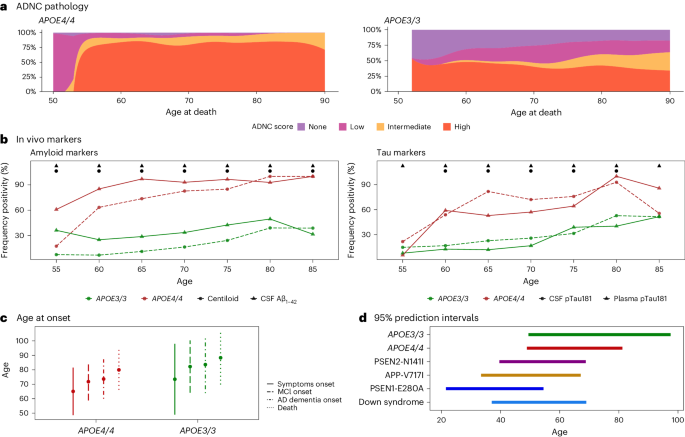Anyone who has Alzheimer's, or is close to someone who has Alzheimer's, will have heard of APOE4.
For decades, APOE4 has been identified as a gene that can increase the risk of Alzheimer's - among other risk factors.
But now a study puts this gene on another level: it's not just a risk factor; it's also the origin in some cases.

The analysis carried out by Spanish scientists, which evaluated more than 3,000 brains, suggests that patients with two copies of APOE4 are suffering from a different type of Alzheimer's, of genetic origin.
Scientists have no doubt: they have identified a new genetic form of Alzheimer's.
The gene also becomes a cause of the disease, in specific cases (two copies of the gene).
In the study, practically all the people with the double variant had Alzheimer's.
What's more, these patients are likely to develop Alzheimer's earlier than average. In other words, the gene anticipates the onset of the disease.
Juan Fortea, lead author of the study, said that these findings mark a distinction with "profound implications".
"We propose a new concept of Alzheimer's. Until now, APOE variants were considered risk factors. But our suggestion is that the case of homozygotes be inserted into the growing family of genetically determined Alzheimer's disease."
It is estimated that 15% of Alzheimer's patients carry two copies of APOE4, which means that these cases "can be traced back to a cause and the cause is in the genes," added Fortea, quoted in the Associated Press.
Until now, genetic forms of Alzheimer's were thought to account for less than 1% of all cases. According to Juan Fortea, between 2% and 3% of the world's population have two copies of APOE4 in their DNA.
Important point: the team of scientists argues that a gene duplication test should be carried out if a middle-aged person begins to show symptoms of dementia.
And the expert reinforces the thesis: Alzheimer's is not just one disease. There are versions.






